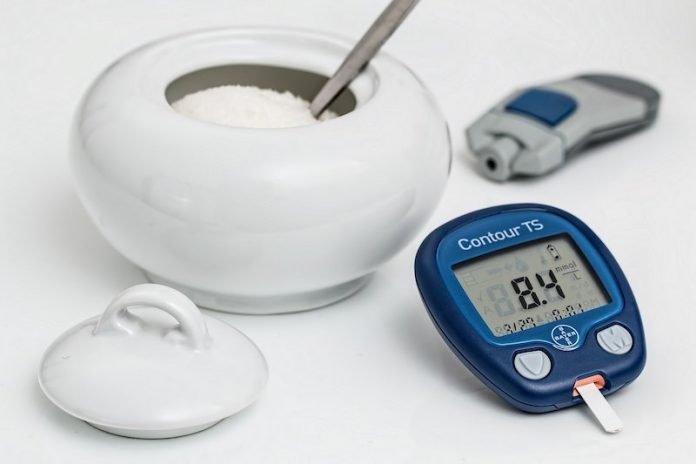
In a new study, researchers have mapped for the first time the vast network of proteins that interact with proinsulin, the protein the body normally processes into insulin.
They also revealed one protein—called PRDX4—that may be essential for proinsulin folding and insulin production.
The research suggests that boosting PRDX4 levels may be a way to improving the health of people with diabetes.
The research was conducted by scientists at Sanford Burnham Prebys Medical Discovery Institute.
Type 2 diabetes is a progressive condition, and over time the insulin-producing beta cells in the pancreas ‘burn out’ and die.
This work suggests that proinsulin misfolding plays a role in beta-cell failure and the development of type 2 diabetes.
Proteins are the workhorses of the cell, and their function depends on their shape.
When proteins are misfolded or damaged, their shape becomes flawed and they can’t perform their regular duties.
Faulty proteins need to be fixed or eliminated before they accumulate, clump, or become toxic, and cause diseases.
Incorrect protein folding is linked to many degenerative diseases, including Alzheimer’s, Parkinson’s, and diabetes.
In the study, the scientists obtained pancreatic islets, which contain the insulin-producing beta cells, from six healthy people.
Using a special molecular technique, they isolated all the proteins that the proinsulin physically interacts with, or “touches,” as it travels within a beta cell and is processed into insulin.
This work showed more than 400 proteins that interact with proinsulin and identified one, called PRDX4, that plays a key role in proper proinsulin folding.
Further work confirmed that PRDX4 is inactivated in islets from people with type 2 diabetes—indicating that the protein holds potential as a therapeutic target.
This study unravels some of that complexity and helps explain the link between type 2 diabetes, proinsulin folding, and insulin production.
The scientists are already repeating this study in islets from people with type 2 diabetes to understand how proinsulin folding changes or fails during disease.
Once these findings are in hand, they will have an even deeper understanding of interventions that may fix or prevent the misfolding.
More than 422 million people worldwide have diabetes, according to the World Health Organization, and these numbers are rising due to increased obesity.
Type 2 diabetes accounts for 90% of diabetes cases and occurs when the body doesn’t properly use insulin—the protein that removes sugar from the blood.
Most current medications help tissues absorb more sugar or increase insulin secretion. No treatments exist that promote proper proinsulin folding to keep beta cells functioning.
One author of the study is Pamela Itkin-Ansari, Ph.D., an adjunct associate professor in the Development, Aging, and Regeneration Program.
The study is published in Diabetes.
Copyright © 2020 Knowridge Science Report. All rights reserved.



